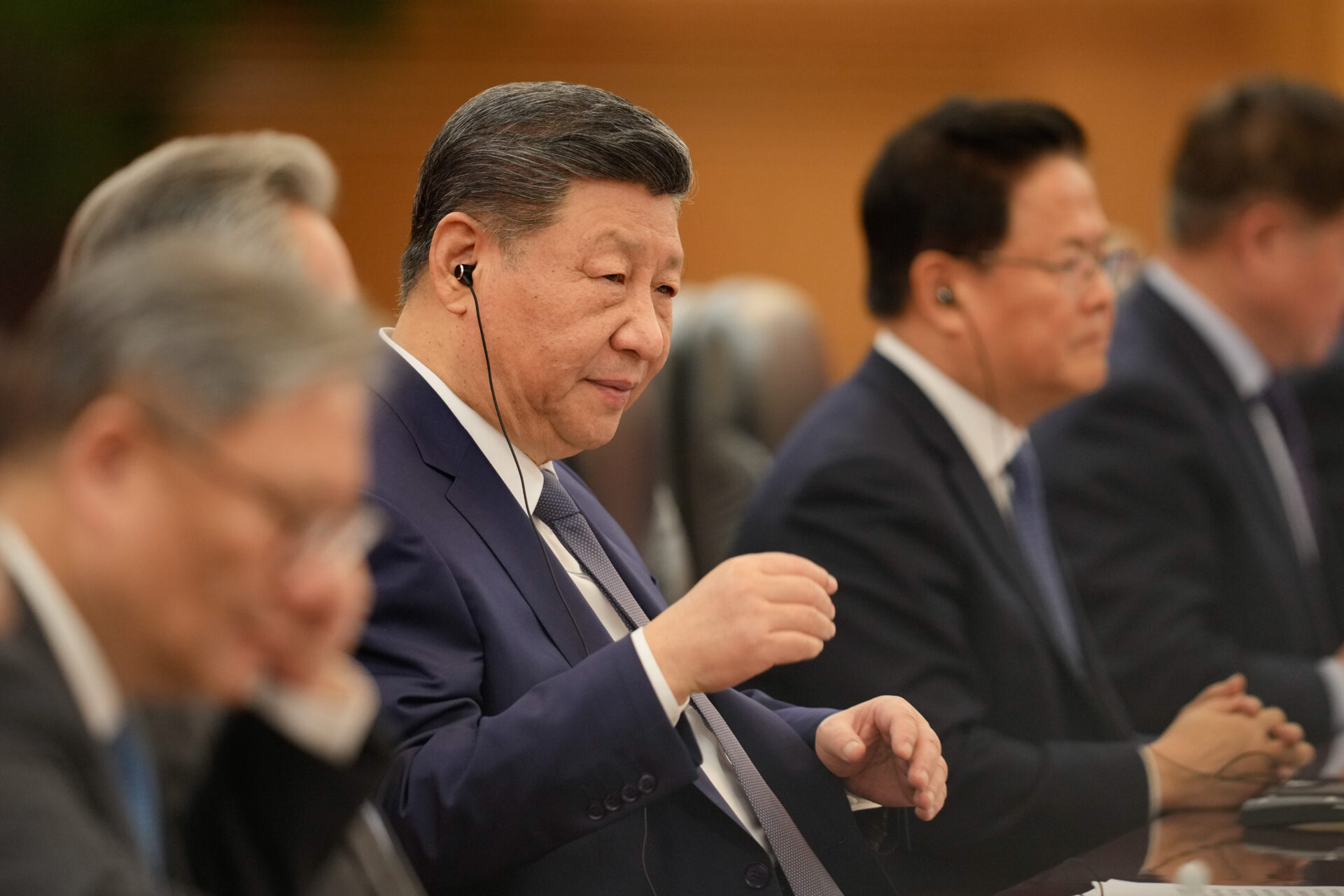MOSCOW REMAINS AT CENTER OF KOSOVO PEACE EFFORTS.
MOSCOW REMAINS AT CENTER OF KOSOVO PEACE EFFORTS.
Diplomatic efforts to end the conflict in Kosovo continued over the weekend, despite NATO’s accidental bombing of China’s embassy in Belgrade on May 7. Aiming to further those peace efforts, former Russian Prime Minister Viktor Chernomyrdin, now serving as the Kremlin’s special envoy for the Kosovo crisis, held talks in Bonn yesterday with both German Chancellor Gerhard Schroeder and the recently named UN special envoy for Kosovo, Carl Bildt. Chernomyrdin met as well with Ibrahim Rugova, the moderate Kosovo Albanian leader who, Western officials believe, was until recently being held under house arrest by Yugoslav authorities. Chernomyrdin had been scheduled to head to Belgrade from Bonn for a new round of talks yesterday, but broke off the trip because of what he suggested were important new developments touching on the Kosovo crisis. He provided no details. Chernomyrdin is flying to Beijing today in an effort to assuage China’s anger over the embassy bombing in Belgrade and to discuss ways to resolve the Kosovo crisis (AP, May 10).
The weekend’s events come in the wake of last week’s Group of Seven summit near Bonn, at which NATO leaders and Russia unveiled a new–if vaguely worded–peace plan aimed at resolving the Kosovo conflict. Diplomats from Russia and the West had hoped to ultimately capitalize on the momentum of that meeting by making the NATO-Russian peace plan the basis of a UN resolution. That resolution would confer a direct international mandate on the principles by which NATO would like to end the conflict–particularly the alliance’s demand that an international military force be deployed in Kosovo to ensure the safety of returning refugees.
The accidental bombing of the Chinese embassy on May 7 initially appeared to have dented those plans, as Russia joined China in furious denunciations of the NATO strike. Russian President Boris Yeltsin, for example, called the bombardment an “open outrage,” an “act of vandalism” and a “further flagrant violation of international law.” Chernomyrdin and Russian Foreign Minister Igor Ivanov spoke in similarly harsh terms.
A Russian Foreign Ministry official, meanwhile, said on May 8 that Yeltsin had ordered Ivanov to cancel a three-day visit to Britain that was to have included talks with British Foreign Secretary Robin Cook. Russian news agencies indicated that Ivanov would instead stay in Moscow to chair a ministry meeting at which Russia’s reaction to the bombing would be worked out (Reuters, Russian agencies, May 8). In an indication that Moscow did not want the embassy bombing incident to derail the latest Kosovo peace efforts, however, Chernomyrdin did depart on April 8 for Bonn and yet another round of peacemaking talks (International agencies, May 7-9).
CHERNOMYRDIN HINTS AT KOSOVO BREAKTHROUGH.


